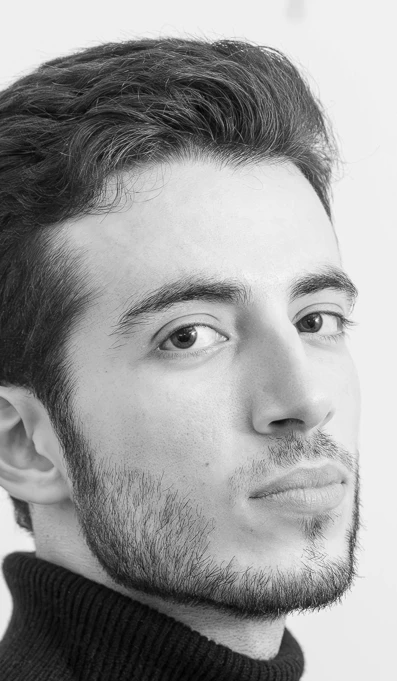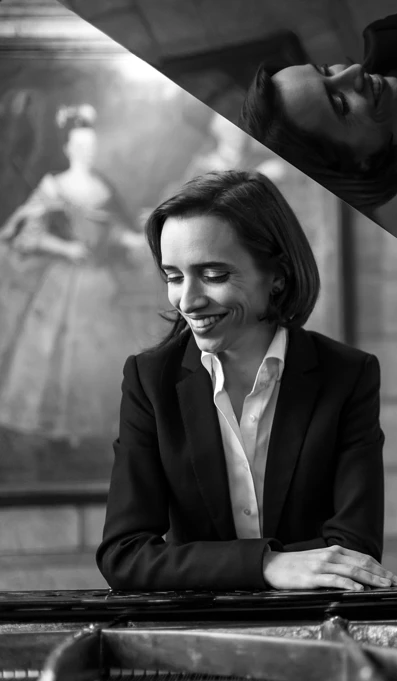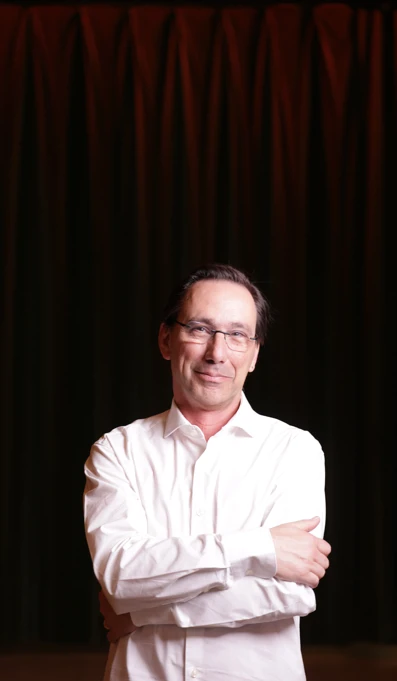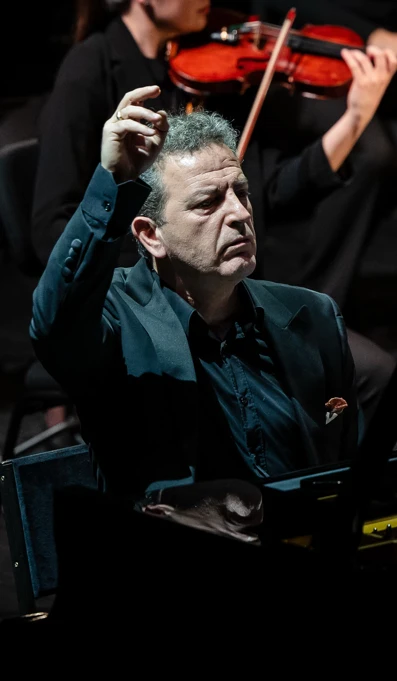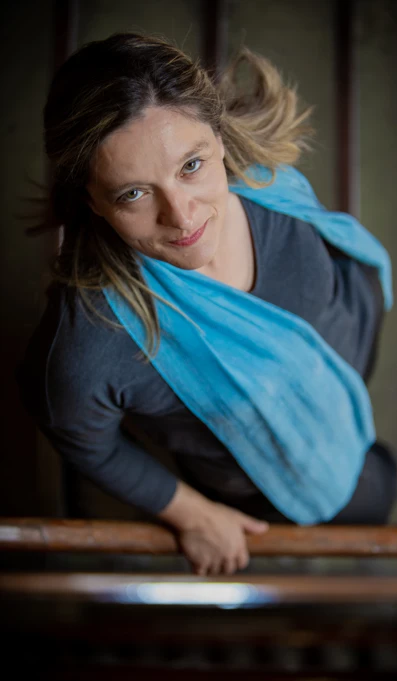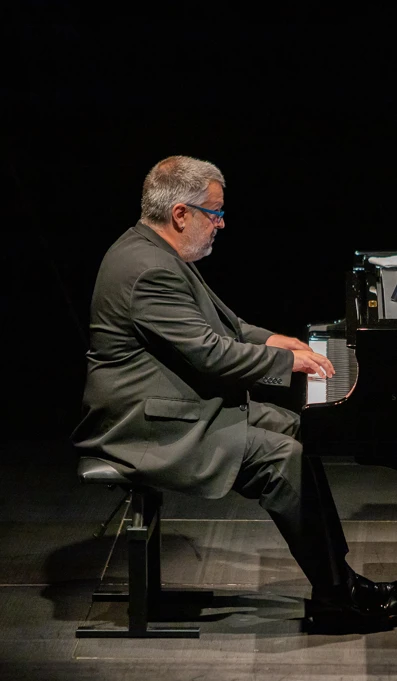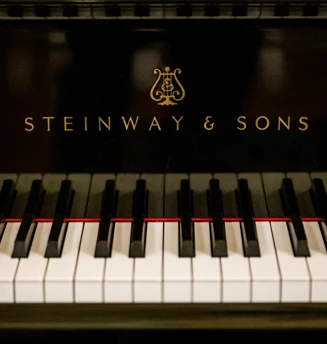
Music
Piano Cycle at the Palaces of Sintra
Piano Cycle at the Palaces of Sintra
Portuguese Piano
This first Parques de Sintra piano cycle is structured around the ‘foundational’ legacy of the composer and pianist Viana da Mota (1868-1948) and his strong links to Sintra and Colares. Not only did the great musician spend part of his childhood living in Colares, where his father owned a pharmacy, but he also received a scholarship from King Ferdinand II and the Countess of Edla, which allowed him to complete his studies in Berlin. On 15 September 1923, by now an acclaimed artist, Viana da Mota performed for free in a concert in Galamares Hall to raise funds for electricity to be installed in Colares. Finally, it was to Colares that Viana da Mota returned to spend his final summers, in the autumn years of his long life.
Regarded as one of the greatest pianists of his day, Viana da Mota also sought to achieve a true musical ‘aggiornamento’ in Portugal, developing projects such as the Sociedade de Concertos de Lisboa (Lisbon Concert Society) and, through his teaching, making known great symphonic works that were still unfamiliar in the country. In terms of musical creation, he was also the most prominent pioneer of musical nationalism in Portugal. In the realm of education, he was responsible for developing a ‘Portuguese piano school’, as well as promoting a thorough reform of music teaching at the Conservatório Nacional in Lisbon.
This homage to Viana da Mota aims to highlight his influence on what can be referred to as ‘Portuguese piano’, hence the title of the cycle. The invitation extended to today’s finest Portuguese pianists who, in one way or another, belong to the piano school he created – his direct ‘descendants’, taught by Helena Sá e Costa, José Carlos Sequeira Costa and Evaristo Campos Coelho – brought into dialogue with an emerging generation of musicians, shows just how much Viana da Mota’s legacy has endured to the present day.
The idea of dialogue and diversity is manifested in the cycle through a vast repertoire of literature for piano. Some lines of recital naturally weave together, starting with the presence of Viana da Mota himself and his Ballade (Marta Menezes, 6 July), which will interact – as a musical form – with the complete ballades of Chopin (Luísa Tender, 13 July) and Gabriel Fauré’s Ballade (Artur Pizarro, 14 July).
The ‘Latin’ element will also be represented through the works of various Iberian composers (Marta Menezes, 6 July), with Artur Santos’ rarely-heard Sonata, pieces from the Goyescas cycle by Enrique Granados (Marta Menezes, 6 July), as well as works from Italy, by Gian Francesco Malipiero and Mario Castenuovo-Tedesco, and Argentina, by Carlos Guastavino and Alberto Ginastera (Artur Pizarro, 14 July). In the form of a cycle, these works interlink with Gabriel Fauré’s 8 Pièces brèves (Artur Pizarro, 14 July), Schumann’s Scenes from Childhood (João Xavier, 5 July) and even Franz Liszt's arrangements of six of Chopin’s Polish Songs (António Rosado, 12 July).
Finally, we visit some emblematic works including Johann Sebastian Bach’s Italian Concerto (Luísa Tender, 13 July), Claude Debussy’s Suite Bergamasque (António Rosado, 12 July), and the ‘monumental’ Sonata No. 3 by Frédéric Chopin (João Xavier, 5 July) and Sonata No. 2 by Sergei Rachmaninoff (António Rosado, 12 July). A particular highlight will be the Goldberg Variations by Johann Sebastian Bach (Pedro Burmester, 7 July), revisited thirty-two years after the huge success of the recording of this work for EMI Classics.
The cycle will take place over the first two weekends of July, with performances at 7pm, as night falls, in full ‘communion’ with the surrounding heritage, in rooms that have witnessed history, music and life itself, known for their intimacy and excellent acoustics – the Swan Room, in the National Palace of Sintra, and the Throne Room, in the National Palace of Queluz – which can only enhance the dreamy atmosphere of a summer night!
Bruno Caseirão (Artistic Director)
PROGRAMME JULY 2024
- 05/07 – 7 pm | JOÃO XAVIER - National Palace of Sintra (Swan Room)
- 06/07 – 7 pm | MARTA MENEZES - National Palace of Sintra (Swan Room)
- 07/07 – 7 pm | PEDRO BURMESTER - National Palace of Queluz (Throne Room)
- 12/07 – 7 pm | ANTÓNIO ROSADO - National Palace of Queluz (Throne Room)
- 13/07 – 7 pm | LUÍSA TENDER - National Palace of Sintra (Swan Room)
- 14/07 – 7 pm | ARTUR PIZARRO - National Palace of Queluz (Throne Room)


